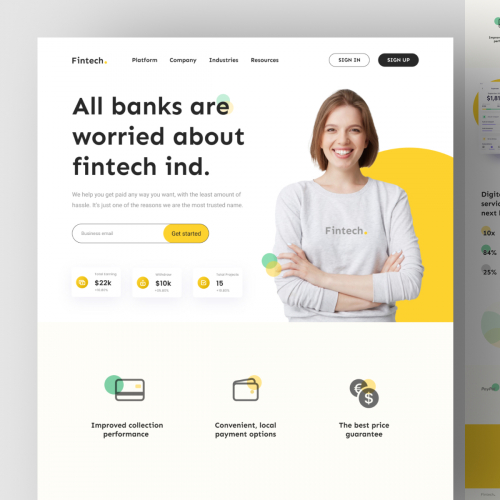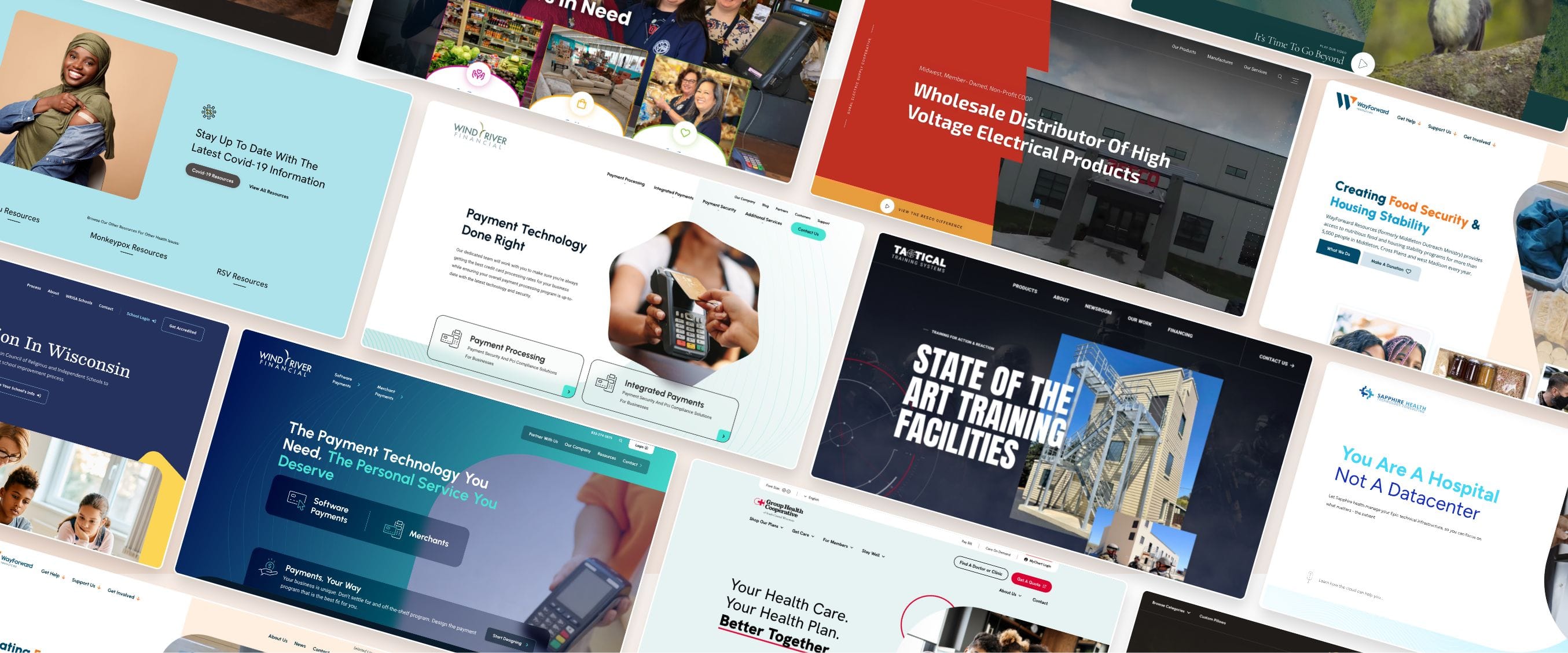Top Tips for Producing an Impactful Site Layout That Transforms
In today's digital landscape, the value of an impactful website design can not be overemphasized, particularly when it involves transforming site visitors right into customers. To achieve this, one should think about a selection of variables, including understanding the target market, focusing on customer experience, and optimizing for mobile platforms. The critical use of compelling call-to-actions and a distinct visual hierarchy plays a critical duty in guiding individuals via their trip. As we check out these vital aspects, it ends up being obvious that the success of your website pivots on greater than just aesthetic appeal; it requires a thoughtful approach to layout and functionality.
Understand Your Target Audience
Understanding your target audience is basic to effective website layout, as it lays the groundwork for developing an interesting individual experience. Recognizing that your individuals are, including their demographics, choices, and actions, enables designers to tailor the site's web content, format, and capability to fulfill particular requirements.
Carrying out complete market research is vital in this process. Studies, meetings, and analytics can supply beneficial insights right into customer expectations and pain points. By assembling this data, developers can produce user personalities that stand for various segments of the audience, making sure that layout decisions are notified and appropriate.
Moreover, recognizing the target audience aids in choosing suitable style components such as color pattern, typography, and imagery that resonate with users. A website that talks directly to its target market fosters a sense of connection and trust fund, encouraging longer sees and greater conversion prices.
Eventually, a user-centered technique to internet site design not only improves individual satisfaction but additionally supports service objectives by driving engagement and commitment. By prioritizing the needs and preferences of the target market, a site can efficiently serve its function and achieve desired end results.
Prioritize User Experience
To boost the total efficiency of a web site, focusing on customer experience (UX) is essential (Website Design). A well-designed UX ensures that visitors can browse the site effortlessly, find info swiftly, and involve with content meaningfully. This causes increased customer contentment and higher conversion rates
Begin by carrying out intuitive navigating. Menus should be rationally structured, enabling customers to locate vital locations of the site with minimal initiative. Consistency in design components, such as shade plans and typefaces, promotes experience, which is critical for keeping customer involvement.
In addition, take into consideration the filling speed of your site. A hold-up of simply a few seconds can result in substantial drop-offs, as customers are less most likely to wait for a slow-loading web page. Simplifying pictures and enhancing code can improve performance and retain site visitors.
By focusing on user experience, you not only create a much more delightful atmosphere for visitors however likewise strengthen your brand name's reliability. Inevitably, an emphasis on UX is an investment in the long-lasting success of your internet site.
Optimize for Mobile Devices
Enhancing check these guys out for mobile phones is important in today's digital landscape, where an increasing number of individuals gain access to web sites through smart devices and tablet computers. A mobile-friendly layout not just boosts user experience yet additionally plays a significant function in improving internet search engine rankings. To achieve this, it is vital to embrace a responsive layout that instantly readjusts to numerous display dimensions and alignments.

Loading rate is one more important element; mobile users are generally much less person and anticipate fast access to info. By prioritizing mobile optimization, you ensure find out here now that your web site stays competitive and successfully involves a wider audience.
Use Engaging Call-to-Actions
A site's efficiency usually depends upon its capacity to direct site visitors toward preferred activities, making compelling call-to-actions (CTAs) necessary parts of design. CTAs serve as the pivotal factors that guide customers to involve with the website, whether that implies buying, enrolling in a newsletter, or downloading and install a resource.
To create effective CTAs, clarity is vital. Usage concise language that clearly communicates the activity you desire the individual to take. Expressions such as "Obtain Started," "Authorize Up Free," or "Shop Now" not just share seriousness yet also get rid of obscurity. The positioning of CTAs is similarly essential; they ought to be tactically positioned throughout the web page to guarantee they are conveniently visible, particularly in high-traffic locations.
Furthermore, the style of CTAs should stick out without being interfering. Utilize contrasting shades and clear fonts to guarantee they capture attention. Furthermore, take into consideration using directional signs, such as arrows or photos, to guide customers towards these buttons. By concentrating on these aspects, businesses can significantly improve individual engagement, driving conversions and ultimately accomplishing their web site's goals.
Emphasis on Visual Pecking Order
Reliable site layout relies greatly on a well-structured visual pecking order that guides individuals with content flawlessly. By organizing elements in a way that focuses on information, developers can boost customer experience and promote decision-making. This entails using dimension, shade, comparison, and spacing purposefully to attract attention to one of the most essential parts of a page.
The use of larger font styles for headings and subheadings develops a clear difference in between various sections, permitting customers to check material effortlessly. Additionally, utilizing contrasting shades for buttons and calls-to-action can capture user focus and motivate interaction. Whitespace is one more find more info essential element; it avoids clutter and allows customers to concentrate on crucial messages without diversions.
Photos and graphics need to complement the message while additionally sticking to the well-known hierarchy, enhancing the overall message (Website Design). Consistency in design components, such as color pattern and typography, further enhances the aesthetic power structure, making navigation instinctive

Conclusion
To conclude, effective internet site style requires a comprehensive understanding of the target market, prioritization of user experience, and mobile optimization. The strategic use compelling call-to-actions and a well-defined aesthetic hierarchy further boosts individual engagement. By carrying out these principles, websites can achieve greater conversion rates, ensuring that layout aspects not only bring in visitors but also assist in smooth navigating and communication. Ultimately, a well-executed website style functions as an important element in driving individual activities and achieving organization purposes.